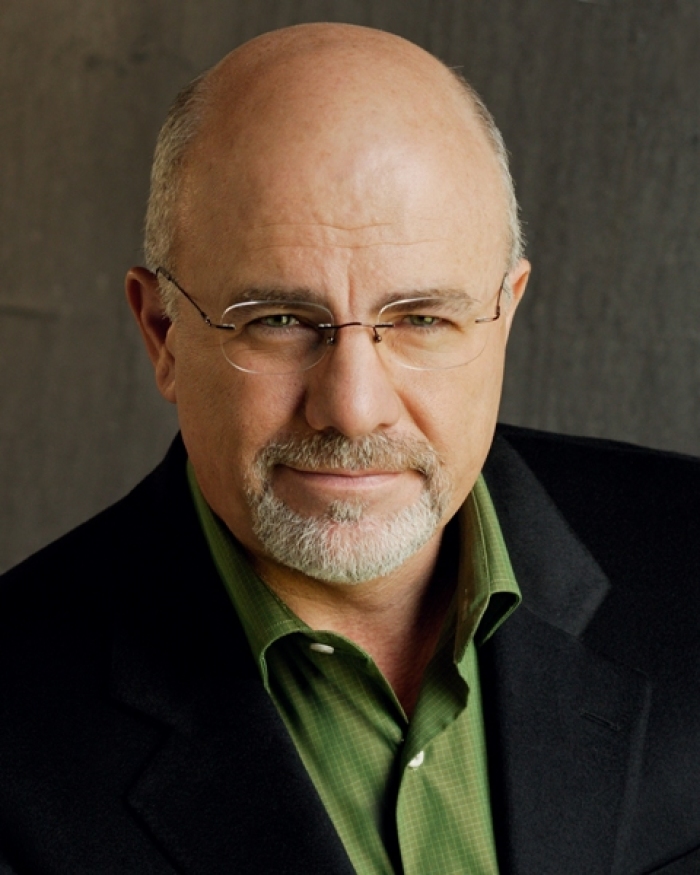Life after Dave: Would it kill you to give a little?

The first deaths in the early church didn’t come at the hands of Pontius Pilot or the Romans., and they didn’t come at the hands of King Herod or any of their fanatically misguided religious leaders. The first two deaths in the church came at the hand of God, when He struck dead Ananias and Sapphira—two donors who lied about their giving (Acts 5). In the wake of their deaths, “Great fear seized the whole church and all who heard about these events.” (Acts 5:11)
This fear seems to have faded over the past 2,000 years. I doubt when Dave Ramsey added “and give” to his famous motto, so that it now reads, “If you live like no one else, later you can live and give like no one else,” he considered that it could be lethal. Who ever thought God would kill you for giving? And how do we avoid committing the same sin that they did?
So what was wrong with their gift? It wasn’t how they gave the money. They put their money at the Apostles’ feet exactly the same way the other new believers did, including Barnabas, the “Son of Encouragement.” (Acts 4:34-37) And it wasn’t the amount. After all, Jesus commended the widow who gave two very small copper coins (Luke 20:1-4). And it wasn’t the percentage. They undoubtedly gave much more than a tenth, or tithe, so proportionally they gave considerably more than their peers expected or the Law commanded. Yes, they held back some of the money from the sale of their property, but as Peter said to them, “Didn’t it [the land] belong to you before it was sold? And after it was sold, wasn’t the money at your disposal?” (Acts 5:4) And didn’t Jesus applaud Zacchaeus when he gave away half of all he had to the poor?
So what was wrong with their gift? They lied. Their “crime” was hypocrisy—saying one thing, yet doing another. They conspired to hold back part of the money for themselves from the property they had sold, yet acted as if they were giving it all. And in doing so, they lied to God. They did the exact opposite of what Jesus taught about giving in His very first sermon: “Be careful not to practice your righteousness in front of others, to be seen by them.” (Matthew 6:1a)
The deaths of Ananias and Sapphira highlight what I call The Giving Paradox: great loving requires great giving, but great giving does not guarantee great loving.
To be sure, great love requires great giving. The newborn church had just witnessed the two greatest acts of love and the two greatest gifts in the history of the world. At the cross, Jesus, in His love for us, gave the greatest gift humanly possible. “Greater love has no one than this, that he give up his life for his friends.” (John 15:13) And at the cross, God the Father gave the greatest gift heavenly possible. He gave the one thing He couldn’t make more of—His son. “For God so loved the world that he gave his one and only son …” (John 3:16a) Giving is the cost of our love.
But great giving does not guarantee great loving. Apostle Paul put it this way: “If I give all I possess to the poor and give over my body to hardship that I may boast, but do not have love, I gain nothing.” (1 Corinthians 13:3) So as the newborn church burst forth at Pentecost, growing by leaps and bounds from 120 (Acts 1:15) to 3,000 (Acts 2:41) to 5,000 men (Acts 4:4), plus women and children, along came Ananias and Sapphira with their duplicitous gift, juxtaposed against the gifts God had just given. And it cost them their lives.
The great fear that seized the church that day was in recognition of God’s holiness. As the Creator and author of life, He will not share His glory with the false master Money. When it comes to giving, we must understand that God doesn’t want our money. He wants our heart.
From the Scriptures, I see three clear reasons God calls us to give: 1) to know him better, 2) to enrich us, and 3) to free us from money as Master.
We give to know him better. God is the real giver. You might have missed this. I know I did. A couple of decades ago when I put every passage on wealth in the Bible into 22 categories, I was completely shocked to find that our giving didn’t make the Top Five. Not “Giving to God,” “Giving to the poor,” or “Giving to others.” (Though when I added the three “giving” categories together, giving did come in at #3). What category came in #1? God’s giving to us. I was so blinded by God’s call for me to give that I missed the obvious: God is the real giver. And when we align our hearts with His, we want to give as well. James tells us, “Don’t be deceived, my dear brothers and sisters. Every good and perfect gift is from above, coming down from the Father of the heavenly lights, who does not change like shifting shadows.” (James 1:16-178) Godly giving, then, reflects His character, and allows us to know Him better.
To know God is to know that He is “the LORD, who exercises kindness, justice and righteousness on earth.” (Jeremiah 9:24b) We reflect His kindness when we “give to everyone who asks.” (Luke 6:30a) God gives His sun and rain to the wicked and the good, the righteous and the unrighteous (Matthew 5:45). Kindness is not related to merit, but rather a reflection of the giver’s character. We reflect God’s justice when we give to those who merit our giving. “Give to everyone what you owe them: If you owe taxes, pay taxes; if revenue, then revenue; if respect, then respect; if honor, then honor.” (Romans 13:7) And we reflect God’s righteousness when we give to the poor, widow, orphan, or outsider. When we look after “widows and orphans in their distress,” (James 1:27) we join with our Father in Heaven in giving what is right.
Giving enriches us. Jesus taught us, “It is more blessed to give than receive.” (Acts 20:35b) This is hard to understand, in that the math doesn’t seem to add up. If I have $10 and give away three, I clearly have less. But this leaves out the truth that God is a rewarder, and He delights in rewarding us for our faith in Him. “And without faith it is impossible to please God, because anyone who comes to him must believe that he exists and that he rewards those who earnestly seek him” (Hebrews 11:6). Through the Prophet Malachi, God even tells us to test Him on this, “and see if I will not throw open the floodgates of heaven and pour out so much blessing that there will not be room enough to store it.” (Malachi 3:10) Normally I would tell you not to test God, but when God tells us to test Him, and we don’t test Him, we test Him, if you see what I mean. Then you will understand what King Solomon taught: “Whoever is kind to the poor lends to the LORD, and he will reward them for what they have done.” (Proverbs 19:17) Apostle Paul explained this to the Philippians when they generously gave to help him out when he was in need: “Not that I desire your gifts: what I desire is that more be credited to your account.” (Philippians 4:17)
Giving frees us from Money as a Master. Getting out of debt is no guarantee that money won’t still enslave you. Peter explains, “people are slaves to whatever has mastered them.” (2 Peter 2:19) Giving frees your heart from Money as master, with all of its false promises, and sets it on God, who alone deserves your love and fear. Ananias and Sapphira missed this, and clung on to their false god even as they claimed to follow the true one.
Is there Life after Dave? Absolutely. Ramsey’s advice can be a great gift to you. Or it can kill you. It all depends on one thing: is your money humbly submitted to His Lordship?
John Thornton is the L.P. and Bobbi Leung Chair of Accounting Ethics at Azusa Pacific University, and author of Jesus’ Terrible Financial Advice: Flipping the Tables on Peace, Prosperity, and the Pursuit of Happiness.




























